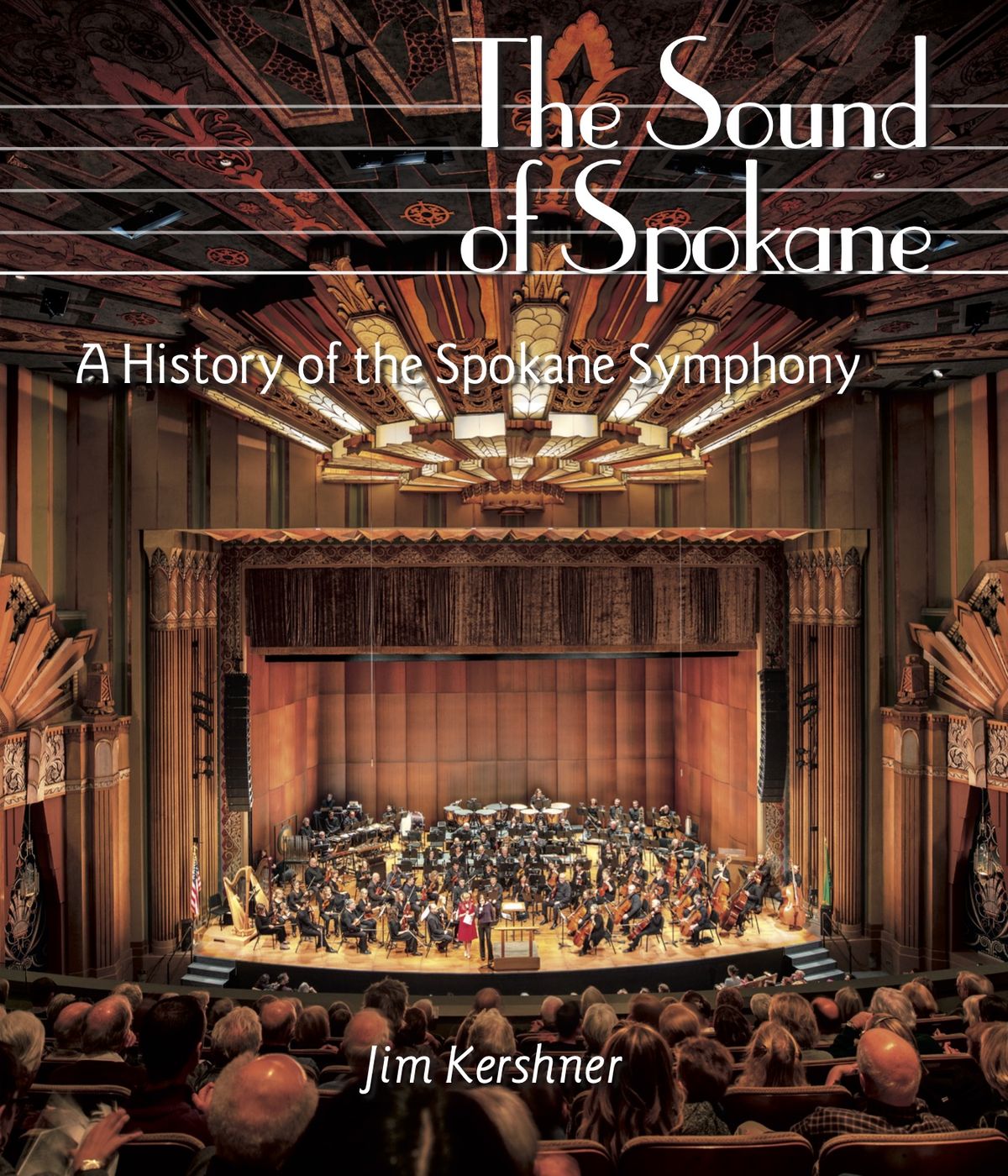A 75-year drama, punctuated by the occasional ‘orchestral Woodstock’

In honor of the Spokane Symphony’s 75th anniversary, author and journalist Jim Kershner and Spokane Symphony principal trumpet Larry Jess discussed Kershner’s book “The Sound of Spokane: A History of the Spokane Symphony” with arts reporter Stephanie Hammett in a virtual gathering of the Northwest Passages Book Club, Wednesday.
When conductor and “musical taskmaster” Harold Paul Whelan came to Spokane in 1945, many before him had tried and failed to form a viable symphony orchestra. Spokane clearly wanted a symphony, Kershner explains, but it would take Whelan’s special blend of musical dedication and business acumen to finally put the necessary pieces in motion.
Today, despite enough drama to fuel a Beethoven symphony, the Spokane Symphony Orchestra has continued to solidify its reputation as what some call “the smallest major orchestra in the United States.”
And, as Kershner suggests in the book, if 75 years of operation has proved anything, it has proved that the symphony is as important to Spokane as Spokane is to the symphony.
The SSO’s music directors have had a crucial role as their particular skills pushed the symphony to greater heights of musical excellence one after the other, Kershner explained. Gunther Schuller, a Pulitzer Prize-winning composer and internationally acclaimed conductor, was a particular favorite.
“That one year (with Gunther Schuller) was the best of all possible worlds for us,” Jess said. “Great teacher, great musician, a renaissance man, really. (Schuller) trusted the orchestra and we trusted him right back.”
The symphony’s last conductor, Eckart Preu, was also well-loved by the symphony and the community alike, even if he did neglect to include the 1812 Overture on the Labor Day concert program his first year. Spokane takes the traditions of our annual “orchestral Woodstock” very seriously, Jess and Kershner joked.
Some music directors were better than others. Jess recalled a few less-than-fond memories from Vakhtang Jordania’s brief yet unduly lengthy time atop the conductor’s box.
“We did not have a good time with him,” Jess said. “Gunther gave us everything. Vakhtang was pretty much the opposite of that. We didn’t know where the downbeat was half the time.”
Another factor essential to the symphony’s longevity has been the financial support provided by the Spokane Symphony Associates and their groundbreaking “Christmas Tree Elegance” fundraiser.
“You just can’t overstate how successful that has been,” Kershner said. “It is easily, by a factor of 10, the most successful arts fundraiser in Spokane. And I think it’s safe to say that the symphony would not be here without them.”
The last factor in the organization’s long life, Jess explained, has been the dedicated musicians who make the symphony what it is.
“One of the best things about this orchestra is that it really is a family of people,” Jess said. “We all care about each other; we’re all friends.
“I think that’s one of the things that Gunther Schuller saw in this orchestra that drew him to us. He had conducted big orchestras around the world, the biggest really, and sometimes those musicians are pretty burned out. They’ve played Beethoven’s 5th symphony 200 times and kind of going through the motions. But, we were and still are excited about playing. I think Gunther Schuller saw that, and every conductor after him. We’re all in this together.”
Jim Kershner’s “The Sound of Spokane: A History of the Spokane Symphony” is available for purchase at Auntie’s Bookstore, Atticus Coffee & Gifts, Wishing Tree Books and online at spokanesymphony.org. Autographed copies are available in the Northwest Museum of Arts & Culture Gift Shop.